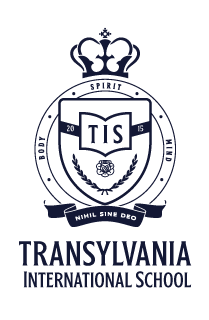F.A.Q.
ALL ABOUT TIS SCHOOL
Questions and Answers
Mission, values, vision
What is the TIS mission?
What are the TIS values?
Education for values is an important point in our vision, which is why we are proposing:
- creating a non-competitive environment, centred on the learner and his/her specific needs
- encouraging freedom of expression and logical thinking
- vocational counselling
- confidential and personalised assessment
- health education
- life skills
- respect for the environment (Reduce, Reuse, Recycle programme)
- harmonious learning environment with a small number of students (maximum 15)
- cross-cultural responsibility and preservation of cultural heritage
The projects we implement also aim to make these values a reality. Thus we mention TIS Care, TIS Parents, TIS Education, TIS Partners, TIS Nature, TIS Living Books, TIS Life Skills, TIS Science, TIS Speakers, TIS Music, TIS Camps, TIS Summer. All of these embrace in a practical way every value we promote, provide the framework for development, both of ourselves and those around us. We want to include and share from our values and perhaps in this way create one big TIS family, where each individual matters, develops and is helped to reach their potential, and in turn, they pass on what they have received.
What is the TIS vision?
Transylvania International School aims to bring families from Brasov an exceptional educational alternative. This involves:
- creating an international learning context, culturally and individually adapted
- foreign languages, national and international accreditation, international educational standards (Common Core State Standards, USA), adapted to the National Curriculum
- a perspective of a complete education, including the mental-intellectual, physical and technical-practical, as well as the emotional and spiritual.
Curriculum
What does differentiated teaching mean?
Differentiation of teaching involves personalising and individualising the educational process according to the student's particularities. This differentiation stems from the need to respond effectively and in accordance with the needs of the pupils. We are all unique and none of us learns in the same way, so it is the teacher's duty to get to know their pupils and help them in their educational approach.
In the gifted program developed by the Kentucky Association for Gifted Children, differentiation is defined as "the method by which educators make a specific and planned match between abilities, interests, needs, and curriculum requirements for opportunities to enrich and accelerate the educational process." In other words, differentiation occurs both at the level of curriculum, content and approach. Children are unique, they learn at a different pace, they have different abilities and needs and therefore a different approach is needed. The teacher adapts objectives, working techniques, subject content, activities, assessment methods and even the working environment to ensure the best possible results.
What is personalised teaching?
Personalising education means modifying objectives according to the pupil's own way of functioning, so that they can be adjusted or accelerated according to competences, interests, motivations and potential.
What does individualised teaching mean?
Individualization refers to the set of instructional strategies that aim to ensure that students achieve the same learning goals, at different paces, at different times, and in different ways of thinking about cognitive styles.
What does the 'acceleration' process mean?
According to the vision of several institutions involved in developing programs for gifted children, such as the Davidson Institute or the Kentucky Association for Gifted Children , "acceleration" is a strategy that allows students to move through a dimension of the educational process at a faster pace than the normal average.
There are several types of acceleration: Subject acceleration, in which the student reaches a higher level in one or more subjects of study, while maintaining the level in other subjects for the age of the student. Another form of acceleration is grade skipping, in which the pupil can skip a grade and go directly to a higher grade without taking the subjects corresponding to the grade skipped. Directly related to this form is early admission to school, whereby children aged 4-5 enter primary education. Another form is also the telescoping of two years into one (telescoping), either for one subject or for the whole subject associated with a class.
All these forms of acceleration of learning come as a natural response to the progress children make in their educational journey. Acceleration cannot be imposed, because its effectiveness is determined by the child's intellectual abilities and motivation. The educator or parent observes the child's particularities and only after it has been established that there is a need to restructure the level and complexity of the curriculum to suit the child's individual needs, is it then decided to introduce a faster pace.
What subjects are included in the curriculum?
The areas of study and subjects that TIS students study are based on an integrated, cross-curricular and international curriculum, specifically the National Curriculum and Common Core State Standards, USA.
Why only 15 students in a class?
We believe it is a number with many advantages. This is proven both by our own experience and by expert research.
There is no ideal number, some studies talk about 12 students, the NEA (National Education Association), which supports education specialists in the United States, proposes 15 as the optimal number.
The focus should be less on numbers and more on the effectiveness of working in small class sizes. Research has shown that students from small class sizes perform much better on tests than those from large class sizes. This is supported by the fact that the teacher spends more time on each pupil, observes and checks them more carefully, which allows the educational act to be more qualitative and, therefore, the pupils' results to be better. Pupils have much greater opportunities for involvement, can express themselves more freely and exchange ideas more easily. The small group provides the opportunity to create a community, with closer relationships. All this makes us realise that small numbers are an effective way for the principles of our educational philosophy to be assimilated.
Educational offer
What is the educational offer?
Our school offers several types of educational programs to meet the needs of families in Brasov. School fees are paid monthly over a period of 10 months, starting in September, and differ according to the programme chosen, as follows:
Pre-school cycle:
- Short program (8:00 - 13:00)
- Extended program (8:00 - 17:00)
Primary cycle
- Normal timetable (8:00 - 14:00)
- Extended program (8:00 - 17:00)
Secondary cycle
- Normal timetable (8:00 - 15:00)
- Extended program (8:00 - 17:00)
* The school fee includes the educational program, textbooks for the current year, school supplies and materials for practical skills activities, Student Planner.
*The fee does not include: uniform and sports equipment, lunch and after lunch snack, transportation to and from school, special afterschool clubs (piano, swimming), museum entrance fees, transportation during field trips and expenses related to field trips or extracurricular activities.
What is the menu offer?
In our school there is also the option of catering meals.
The menu is completely ovo-lacto-vegetarian, varies from week to week and is based on the principle of a nutritionally balanced diet.
What is the school program?
Preschool short program 08:00-13:00
Extended preschool 08:00-17:00
Preparatory class short program 08:00-13:00
Preparatory class long program 08:00-17:00
Grades 1-4 short program 08:00-14:00
Classes 1-4 long program 08:00-17:00
Classes 5-7 short program 08:00-15:00
Classes 5-7 long program 08:00-17:00
What does the Afterschool programme involve?
The Afterschool program runs from 14:00-17:00. In this programme parents can choose either supervision or one of the workshops:
- Pottery
- Photo-video
- Media
- Pathfinders
- Clothing design
- English with native teacher
- Football
- Basketball
What kind of scholarships does the school offer?
Students in full-time courses at the Transylvania International School can benefit from scholarships awarded from the donations.
Types of scholarships:
- Excellence Scholarship
- Social scholarship
Scholarships are awarded every school year during the school year. A student cannot receive two scholarships at the same time.
The specific criteria for awarding scholarships are determined annually by the TIS School Board, within the limits of the funds allocated and in relation to the completeness of the pupils' school activities.
During the scholarship period, students may lose the scholarship if they are observed to be engaging in behaviour that is not in line with the values of our school.
Evaluation
What is the method of assessing students?
Assessment is progressive, individualised, confidential, in accordance with the rules of the international curricula we use.
What does the SAT baccalaureate involve?
The Baccalaureate SAT is the official national assessment method used in the United States for admission to higher education. The SAT exam refers to two types of examination SAT Reasoning Test or SAT I (Scholastic Aptitude Test) and SAT Subject Tests or SAT II (Scholastic Achievement Test). Most universities in the United States require the SAT I, which is also the most common, for admission.
The SAT I includes written communication and math tests, with the option of an essay test. The communication tests cover reading, writing and language skills. The skills that are mainly assessed in these tests are reading comprehension, writing a written message on a variety of topics in the areas studied in high school, and writing effective and persuasive opinion essays. The mathematics exam focuses on elements of algebra, mathematical analysis, geometry and trigonometry topics.
The SAT exam focuses on testing the skills a student needs to be able to successfully face later stages in their academic journey. Good scores on this exam are a good calling card and an opportunity to get a scholarship to colleges in the United States and beyond. Among the criteria required for admission to the world's top universities are good scores on tests such as the SAT.
Based on these facts, and on reasoning that recommends it for an accredited school in the United States such as TIS, we have chosen the SAT as the method of evaluation, and the academic preparation of our students to take into account the requirements set by it.

